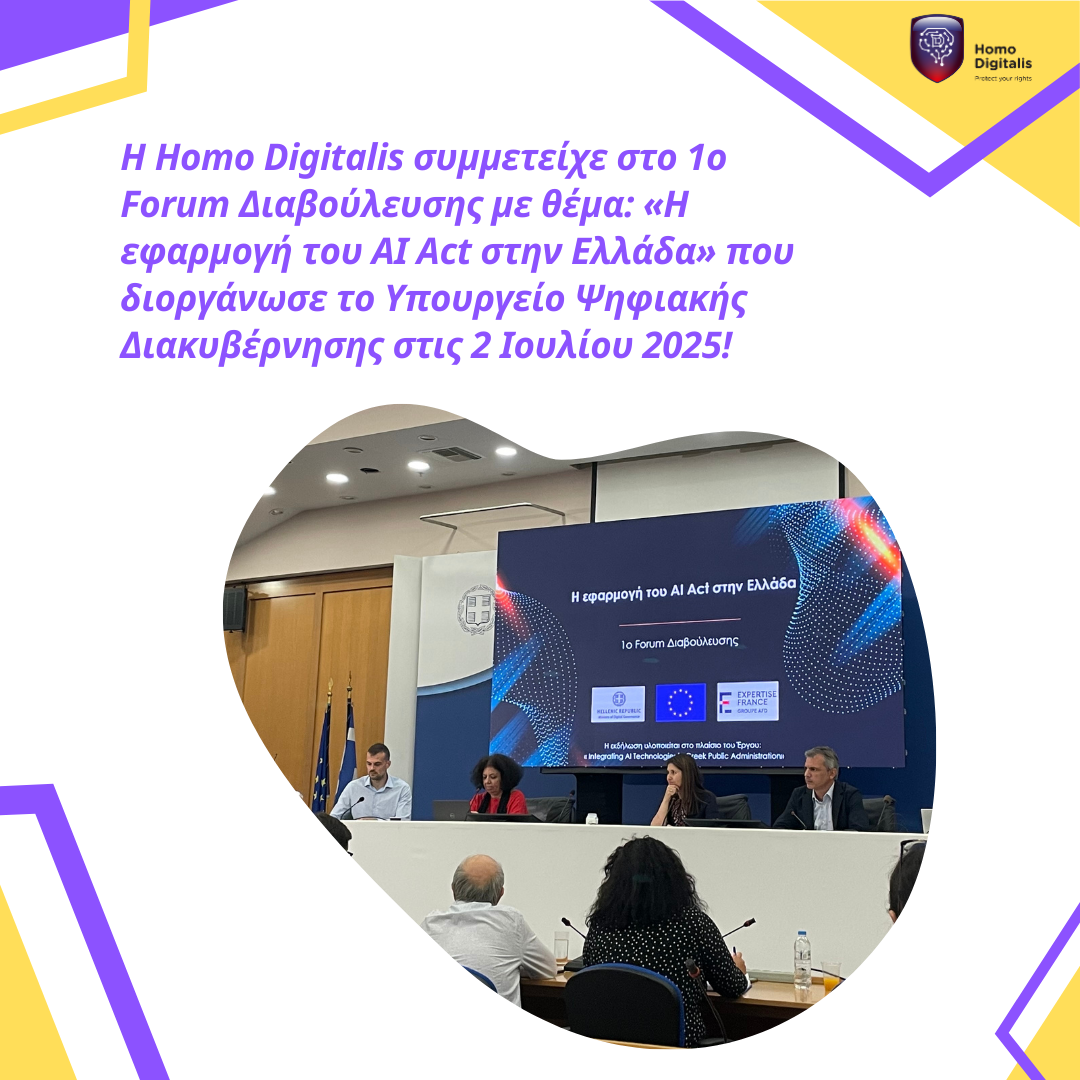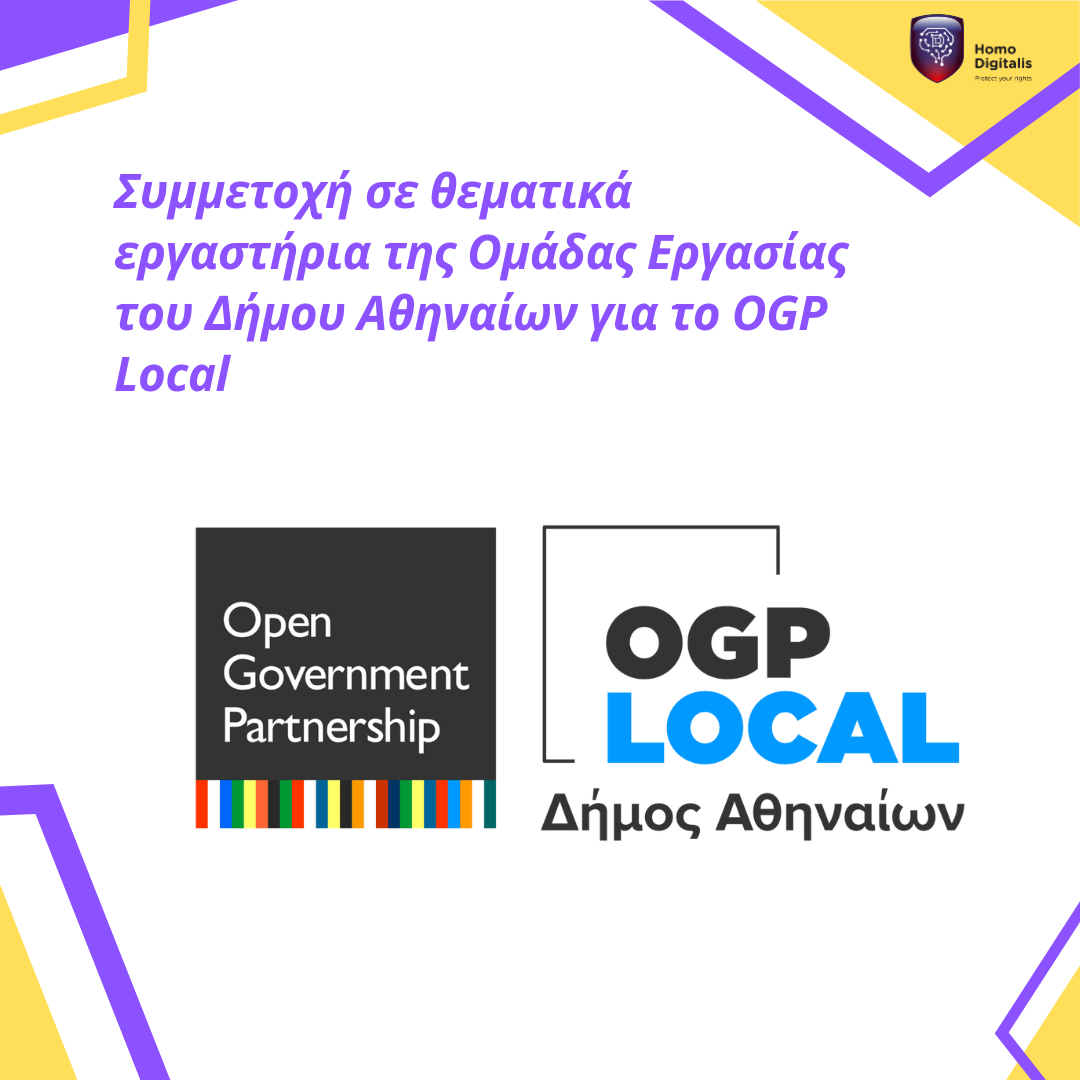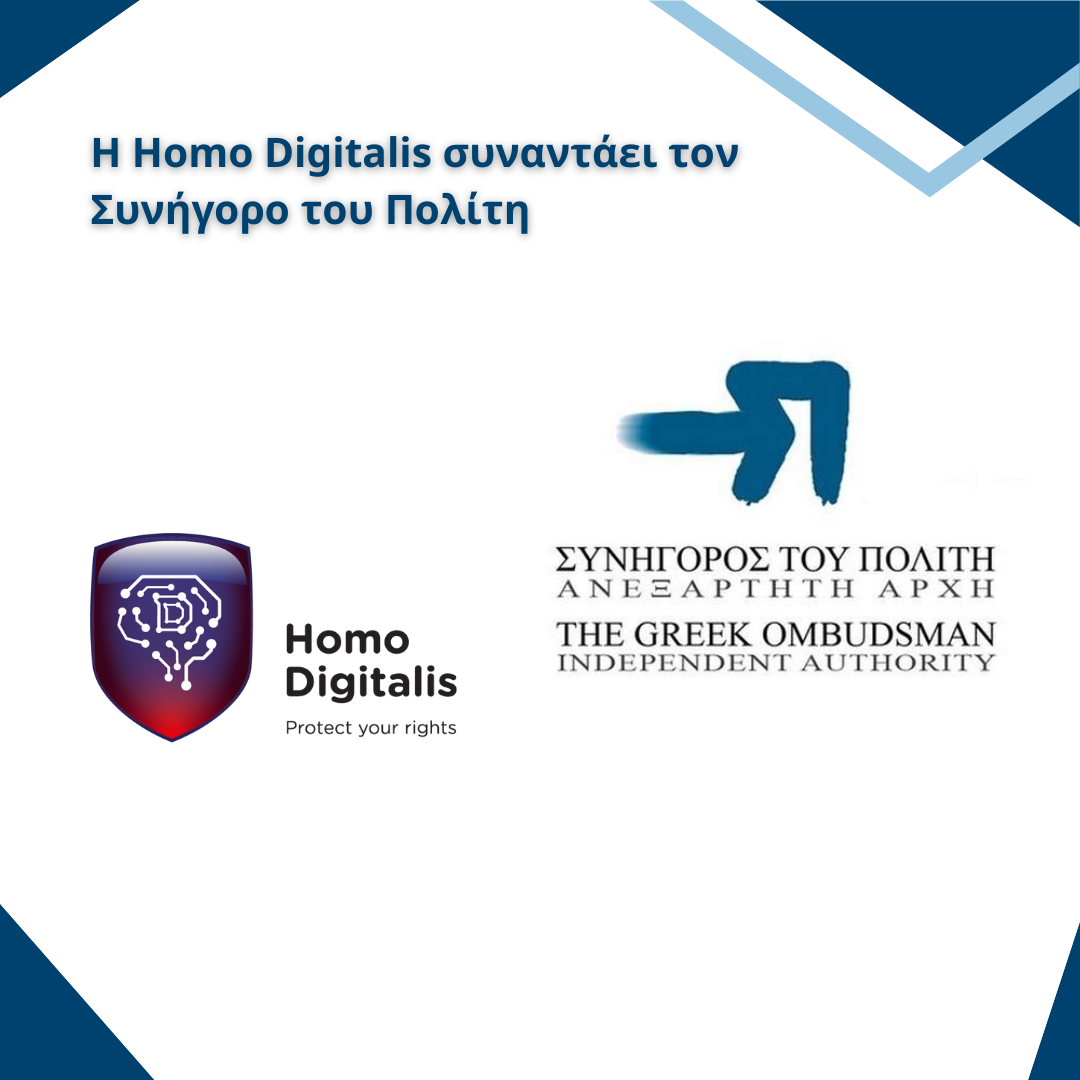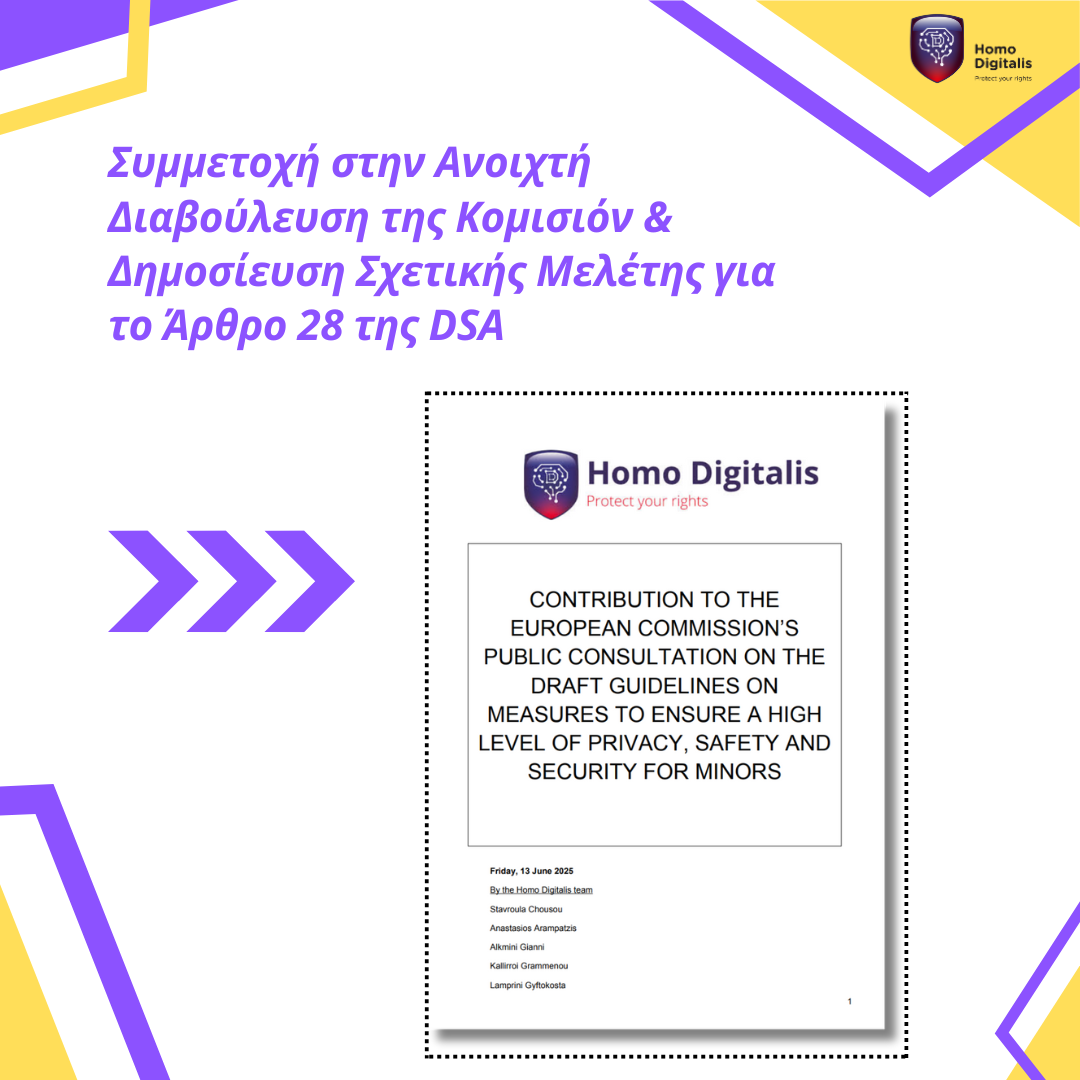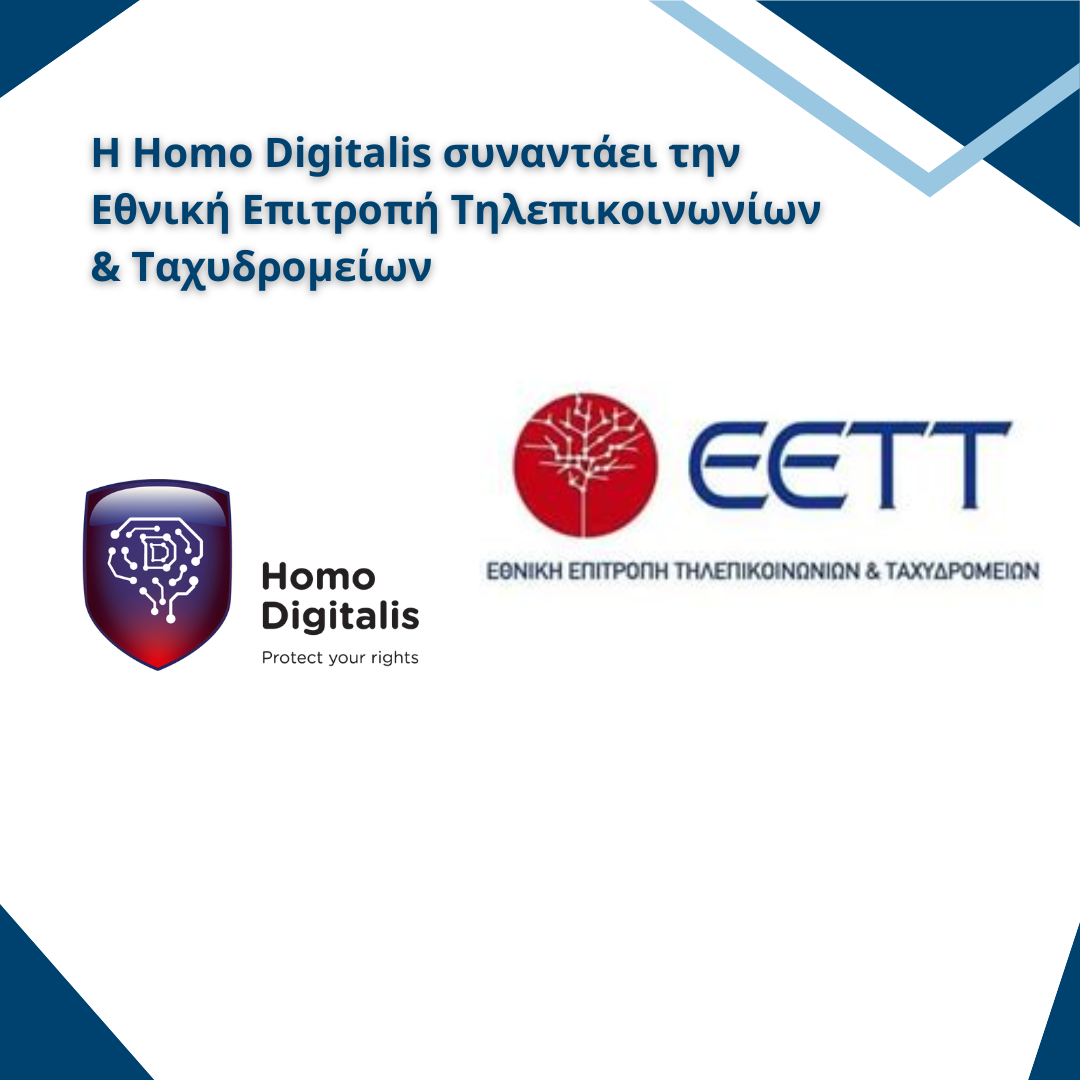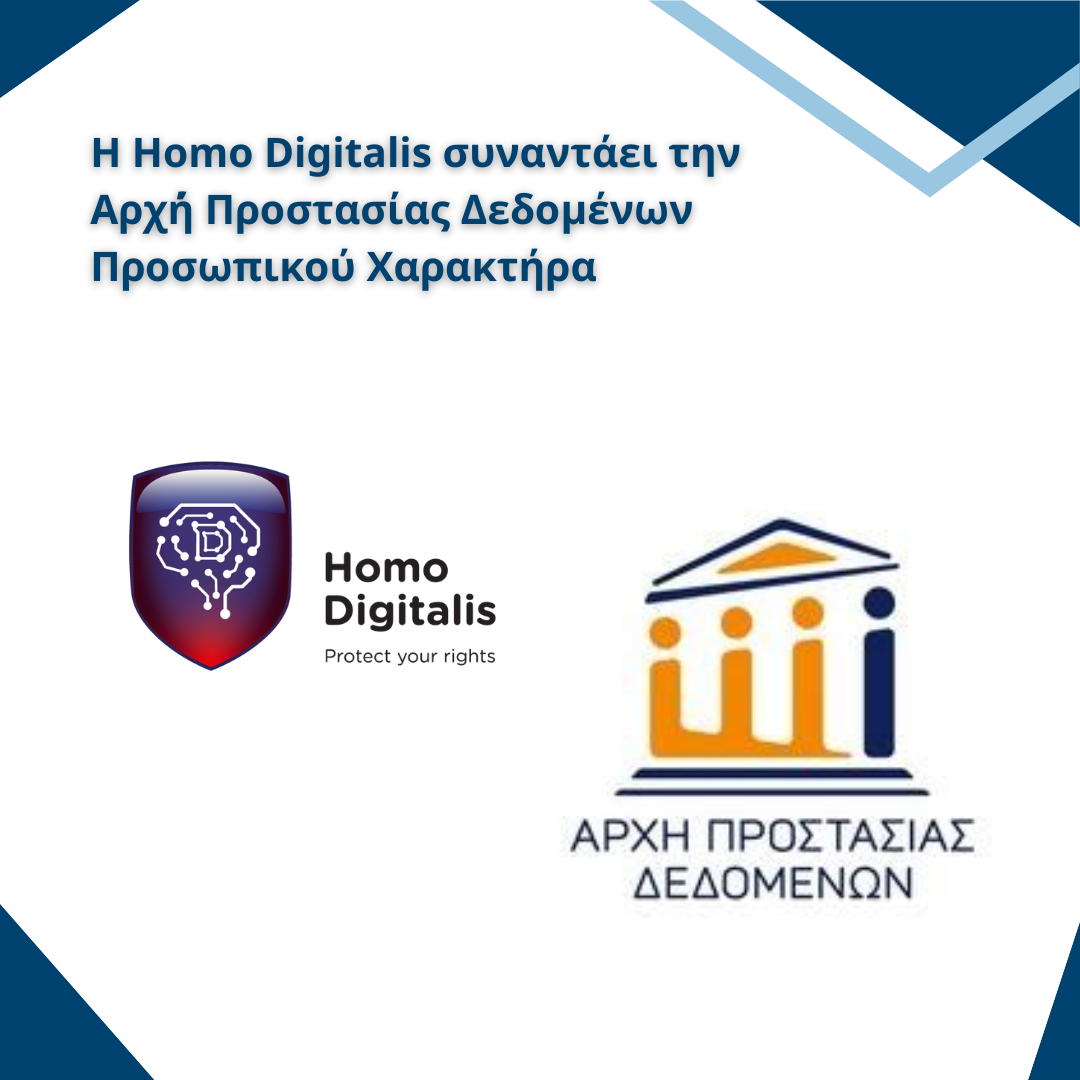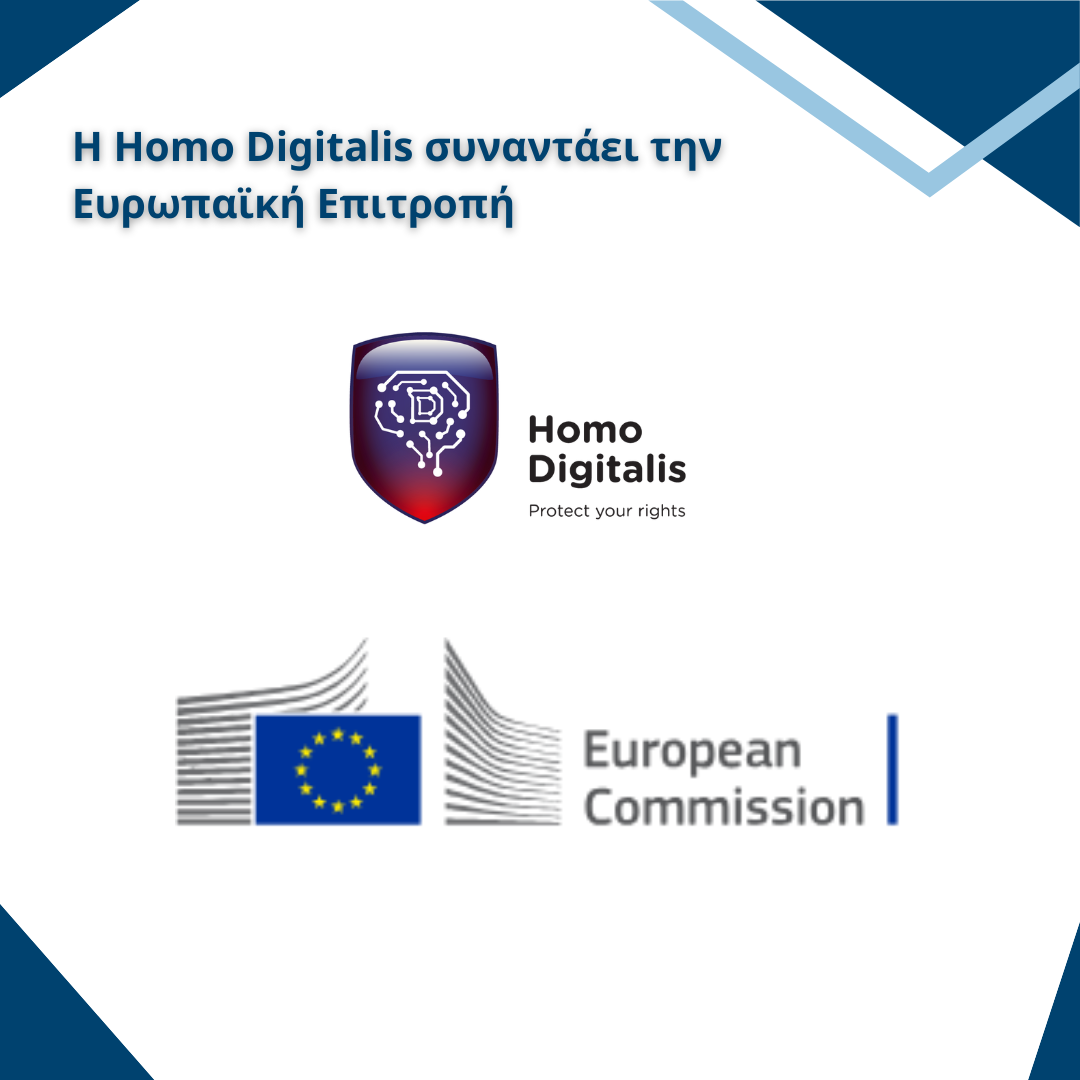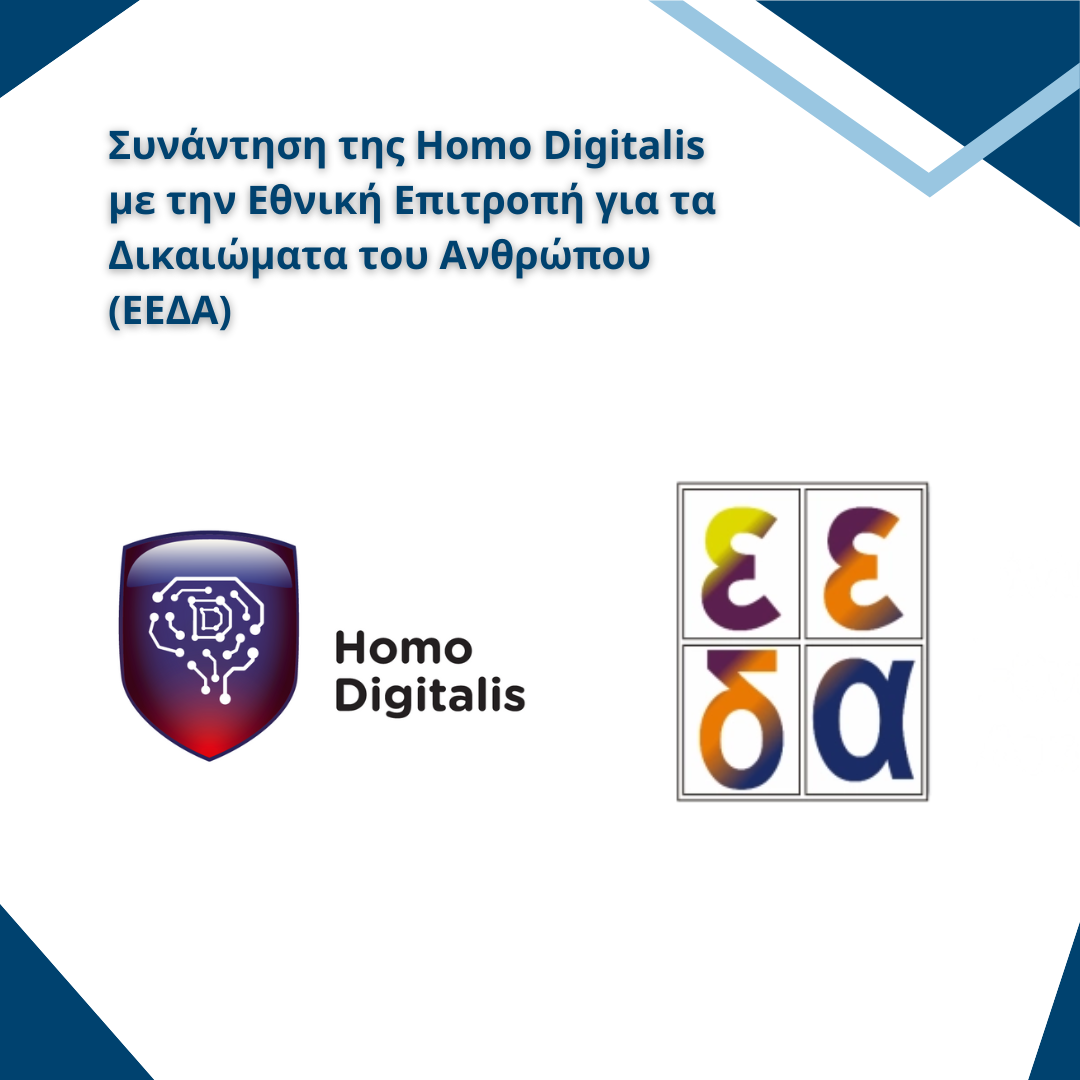Homo Digitalis contributes to two EU consultations on the Data Strategy and high-risk AI systems
Last Friday, July 18th, Homo Digitalis submitted detailed input to two public consultations launched by the European Commission.
The first consultation focused on collecting targeted input from stakeholders regarding the implementation of the AI Act (2024/1689) rules for high-risk AI systems. According to Article 6(5) of the AI Act, the Commission must publish guidelines on the practical implementation of the high-risk classification rules by February 2, 2026, accompanied by a list of practical examples of both high-risk and non-high-risk AI systems. Additionally, Article 96(1)(a) requires the Commission to provide guidelines on the application of obligations and responsibilities for high-risk AI systems, including those across the AI value chain, as defined in Article 25. In its submission, Homo Digitalis provided practical examples of AI systems from Greece and other countries, and highlighted key issues that should be clarified in both the classification and compliance guidelines.
The second consultation addressed the EU Data Strategy. Its three goals are to: 1) boost investment in data technologies and promote data sharing through voluntary or funded initiatives; 2) streamline existing rules and develop data tools to reduce administrative burdens; and 3) shape an international data strategy that ensures safeguards for data transfers outside the EU and encourages data inflows into the EU.
In its response, Homo Digitalis raised strong concerns about potential undermining of personal data protection under the pretext of simplification, flexibility, and competitiveness. The organisation reaffirmed its position that fundamental rights must be strengthened through the use of new technologies and rejected the framing of existing legal frameworks as a barrier to innovation. According to Homo Digitalis, the challenges lie primarily in the lack of enforcement and resources, not the laws themselves.
You can read our full submission for the first consultation here.
We thank the drafting team, Stavrina Chousou, Niki Georgakopoulou, Sofia Antonopoulou, and Eleftherios Chelioudakis, for their valuable contributions.
You can read our full submission for the second consultation here, edited by our Executive Director, Eleftherios Chelioudakis.
Homo Digitalis Participates in the 1st Consultation Forum of the Ministry of Digital Governance on the AI Act
On July 2, 2025, Homo Digitalis participated in the 1st Consultation Forum titled: “The Implementation of the AI Act in Greece”, organized by the Ministry of Digital Governance and Expertise France.
The event was held in the context of the TSI Technical Support action “Integrating AI Technologies in the Greek Public Administration”, funded by the European Commission (SG REFORM). Its aim was for the Ministry to gather valuable information, exchange views with stakeholders, explore best practices, challenges, and prospects, and present its proposal for the implementation of the AI Act and AI governance in the country.
Homo Digitalis was invited to participate in the roundtable discussion of the thematic session “Artificial Intelligence in the Public Sector”, which focused on the challenges and opportunities of implementing AI systems by public sector entities in Greece.
During the event, we submitted our written views on the questions raised in the thematic session to the Ministry, distributed copies of our statements to relevant decision-making bodies, and presented them orally as part of our contribution during the roundtable discussion.
We sincerely thank the organizers and speakers of the event for including us and giving us the opportunity to share our positions! Homo Digitalis was represented by Eleftherios Chelioudakis, Co-founder and Executive Director of Homo Digitalis, who also is the editor our statements.
You can view our written positions here (in EL).
Homo Digitalis participates in 2 thematic workshops of the City of Athens OGP Local
On May 18, at Serafio, Homo Digitalis had the great pleasure of taking part in two thematic workshops organized by the City of Athens OGP (Open Government Partnership) Local Working Group. The workshops focused on Universal Accessibility in Physical and Digital Spaces and Transparency, Accountability, and Participatory Budgeting.
Through a shared methodology of gathering proposals, clustering ideas, and voting, under the coordination of Alexandros Melidis, General Director of the Greek Free Open Source Software Society, we had the opportunity to discuss and jointly decide on a series of particularly interesting proposals.
Our organization was represented in the two thematic discussions by Lamprini Gyftokosta and Eleftherios Chelioudakis, respectively.
We warmly thank the members of the Working Group responsible for designing and implementing the action plan for the City of Athens’ participation in OGP Local, for their kind invitation and excellent collaboration — including Ioannis Fytros, Angelos Kaskanis, and Stefanos Loukopoulos.
Homo Digitalis meets with the Greek Ombudsman
he Greek Ombudsman welcomed the non-profit organization Homo Digitalis to his offices on June 26, 2025, for a meeting on issues related to digital rights and artificial intelligence. Among other topics, the discussion addressed the role of the Ombudsman under the European Union’s Artificial Intelligence Act, following his designation as one of the fundamental rights authorities under Article 77 of the Regulation.
We warmly thank the Honorable Greek Ombudsman, Mr. Andreas Pottakis, for his time and availability.
Participating in the meeting was Homo Digitalis Co-founder and Executive Director Eleftherios Chelioudakis.
We submitted our views to the European Commission’s public consultation on Article 28 of the DSA
On June 13, Homo Digitalis submitted its responses to the European Commission’s Public Consultation regarding the guidelines for the protection of minors online, within the framework of Article 28 of the Digital Services Act.
The responses to the questionnaire were accompanied by a study, which provided a more detailed explanation of the relevant proposals and concerns.
The editorial team for this action consisted of Stavrina Chousou, Anastasios Arampatzis, Alkmιnι Gianni, Kalliroi Grammenou, and Lamprini Gyftokosta.
You can read the responses to the questionnaire here.
You can read the study here.
Homo Digitalis meets with the Hellenic Telecommunications & Post Commission
The Hellenic Telecommunications and Post Commission (EETT) welcomed the non-profit organization Homo Digitalis to its offices on May 29, 2025. In this context, we discussed with the Directorate of Digital Services and Digital Affairs of EETT its work in the field of supervising compliance with the DSA in Greece.
We are very pleased with EETT’s kind invitation to this meeting and look forward to strengthening our cooperation in the near future.
Homo Digitalis meets with the Hellenic Data Protection Authority
The Hellenic Data Protection Authority (HDPA) welcomed the non-profit organization Homo Digitalis to its offices on May 30, 2025, for a meeting on issues related to digital rights, personal data protection, and artificial intelligence. Among other topics, the discussion covered recent developments in the field of new technologies, relevant cases and requests we have submitted before the Authority, as well as the role of the HDPA under the European Union’s Artificial Intelligence Act, following its designation as one of the authorities under Article 77 of the Regulation (Powers of the authorities for the protection of fundamental rights).
Participating in the meeting were Homo Digitalis Co-founder and Executive Director Eleftherios Chelioudakis and Homo Digitalis Director of Human Rights and Artificial Intelligence Lamprini Gyftokosta.
Homo Digitalis meets with the European Commission
On May 19, 2025, Homo Digitalis welcomed to its offices the representative of the European Commission in Greece (Directorate-General for Communication Networks, Content and Technology – Platforms Policy and Enforcement, Unit CNECT.F1) regarding the implementation of the DSA. In this context, we discussed the Commission’s work in the field of supervision, as well as possible avenues for cooperation.
Homo Digitalis meets with the National Commissioner for Human Rights (NCHR)
The Greek National Commission for Human Rights (GNCHR) welcomed the NGO Homo Digitalis to its offices on May 13, 2025, for a meeting focused on digital rights and artificial intelligence.
Among other topics, the discussion covered recent developments in the field of emerging technologies, the EU Artificial Intelligence Act and its implementation, as well as the role of the GNCHR under the Regulation, following its designation as one of the authorities referred to in Article 77 (Powers of Fundamental Rights Monitoring Authorities).
Participants in the meeting included Professor Maria Gavouneli, President of the GNCHR, Elli Varchalama, Second Vice-President of the GNCHR, Dr. Christos Tsevas, Special Scientist, Eleftherios Chelioudakis, Co-Founder and Executive Director of Homo Digitalis and Lambrini Gyftokosta, Director of Human Rights & Artificial Intelligence at Homo Digitalis.

